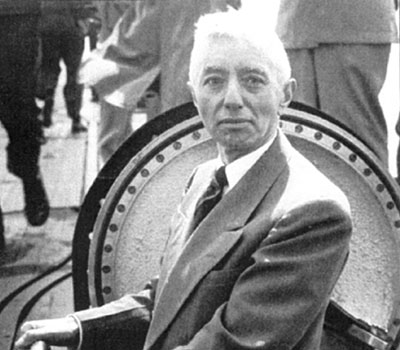Published in The Lebanon Democrat Tuesday, April 19, 2016.

BONITA, CA – At my age, memories can pop into my head at unexpected moments.
One of my greatest regrets is not taking the time and effort to keep a journal. During the 1964-65 school year while I was working for Fred Russell at the Nashville Banner sports department and living with four Vanderbilt fraternity brothers in an large old house near the campus, I told my friend Cy Fraser apparently my role in life was to record what was going on around me. But I was not disciplined enough to record it all.
I never really connected with any celebrities. I had brushes with a few, mostly through my daughter Blythe. Almost three, she hugged Rod Serling’s leg (creator of “The Twilight Zone”) in the Los Angeles airport baggage claim. Later in the same airport Kathryn Crosby spotted Blythe as she and Bing were deplaning and we were boarding. Kathryn came over, picked Blythe up, gave her a hug, and declared to Bing, “Isn’t she the sweetest thing?”
But me? Nope.
I did have some dealings with one of the most famous Naval officers: Admiral Hyman Rickover, the father of the nuclear navy who served longer, 63 years, as an active duty officer than anyone in Navy history, retiring as a four-star admiral.
He was also known to be eccentric. I can attest to that.
As the senior Naval officer in the NROTC Unit at Texas A&M and teaching four Navy courses, which designated me as an associate professor (yes, I still chuckle). In 1978, our submarine lieutenant billet was gapped, and I assumed the duties as the nuclear power officer (I laugh at that as well). In that role, I assisted midshipmen in getting accepted to the Navy’s nuclear power program.
I learned all I could about the acceptance process, which always culminated with a pass or fail interview with Admiral Rickover. I had heard many tales about Rickover, his inspections of his nuclear powered submarine fleet, and his interviews. I read about his research, his relationship with the Navy hierarchy and congress.
One of my favorite finds was a Rickover response about flag officers. The House Armed Services Committee was questioning the admiral on nuclear power and the military. A representative asked Rickover if he had the authority, how would he make the Pentagon more effective.
Rickover responded, “I would take half of the flag officers (admirals and generals) and give them each an office in the “D-Ring” (the outside ring of the Pentagon). Then I would give them each a pad of paper and let them write memos to the other flag officers in the D-Ring, with their memos not ever going beyond that area.
“Then the other half would go about taking care of Navy business.”
Yet I could not find a trend in Rickover’s interview questions or applicants’ answers to help Aggie applicants gain Rickover’s approval.
There was the NROTC midshipman who Rickover directed to “make him mad.” The Middie looked at Rickover’s huge desk with many valuable items representing the admirals’ many accomplishments and awards. The interviewee reached over with his arm and swept all of the desk contents to the floor.
He was accepted.
One of my favorite stories gave me a clue as to what Rickover would not accept came from a Naval Academy applicant.
As the young man stood before the desk, Rickover looked through his files, “I see you are engaged.”
“Yes, sir,” the midshipman replied.
Apparently changing topics, Rickover then asked, “How much do you want to be in my nuclear program?”
“More than anything in the world,” the midshipman replied.
The admiral pushed the phone on his desk toward the midshipman and said, “If you want to be in my program, call your fiancé and tell her the engagement if off.”
The midshipmen mulled over his options, then called his love, and cancelled the engagement.
Rickover then looked at the applicant and said, “I wouldn’t have a weasel like you in my program; get out of here.”
His methods were strange, but they seemed to work. Navy nuclear power has not had a nuclear power related accident since the U.S.S. Nautilus (SSN 571) was commissioned in 1954.
I have reached my word limit. My interface I (from long distance) with Rickover will continue next week.